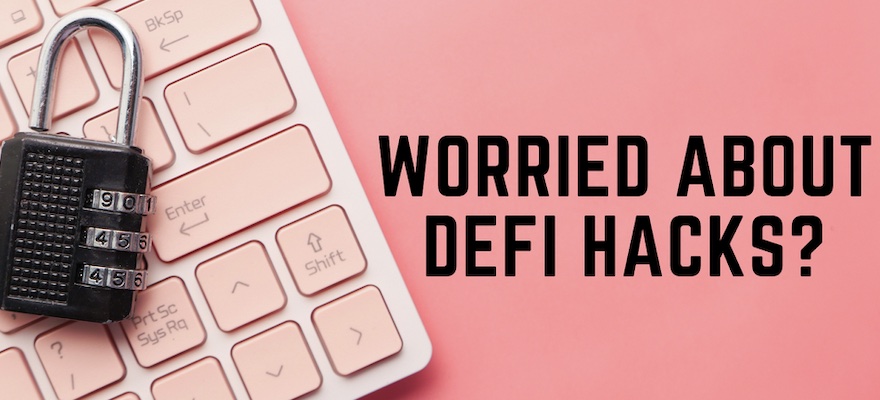Between 2020 and 2021, hundreds of DeFi dApps and protocols built on the Ethereum network flooded the marketplace, raising the total value locked (TVL) of DeFi to $290 billion and counting.
In theory, DeFi represents the core vision of democratizing finance, enabling people worldwide to access financial solutions without geographical restrictions or centralized authorities.
While the DeFi sector has grown exponentially, its rise to fame is clouded by critical security threats.
The last couple of years witnessed billions of dollars of inflows into the DeFi ecosystem and increasing instances of security breaches across prominent platforms.
According to the latest report released by the Atlas VPN team, DeFi-related hacks amounted to almost 76% of all significant hacks in 2021.
Between 2019 and 2021, prominent DeFi platforms have lost serious money due to security breaches, which led to ransomware, phishing, and similar cyberattacks.
During the first half of 2021, DeFi hack losses totaled $361 million, exceeding last year's losses by 180%. Cyber exploits against DeFi grew at the rate of 22.5x year-on-year in October 2021, accounting for almost three-quarters of all significant hacks in 2021.
Data from The Block Research indicates that as of October 2021, the total amount of funds stolen from DeFi amounted to $681.14 million compared to $30.72 million a year ago.
The rising interest of cybercriminals in DeFi platforms is directly proportional to the sector’s unprecedented growth. In general, all DeFi exploits are caused by outside agents (cybercriminals) hacking the protocol or by “rug pull” caused by insiders.
Another reason behind the increased exploits is developer incompetence, which leads to coding mistakes that hackers can easily exploit.
Amidst the rising interest in DeFi products and the looming threat of cyberattacks, several next-gen Blockchain projects are spearheading the efforts to ensure institutional-grade security solutions. Here are three promising projects aimed at securing DeFi, so your holdings are safe from exploits.
Security Solutions To Ensure Your DeFi Assets Stay Safe
First up on our list is RSK Network, the “most secure” smart contract network built on the Bitcoin Network. With more and more countries accepting bitcoin (BTC) as legal tender, RSK brings the much-needed smart contract functionality to the legacy Bitcoin network, allowing dApp developers to deploy smart contracts on the world’s most secure blockchain.
RSK is already working with Kripton Market, an online marketplace for BTC users. With El Salvador using BTC as legal tender, RSK has helped facilitate BTC payment acceptance among hundreds of stores.
By design, RSK’s core engine is a forked version of Ethereum Virtual Machine (EVM) and RSK Virtual Machine (RVM), making it fully compatible with Ethereum-based smart contracts.
The RSK blockchain is decentralized and allows merge-mining with bitcoin (BTC) while offering a hashpower that is only second to the Bitcoin network.
It uses the same hashing algorithm as Bitcoin, the most secure decentralized network in existence, and is protected by over 40% of the Bitcoin Network’s computing power.
Compared to other scaling solutions built for the Ethereum network, RSK is designed exclusively for the Bitcoin network, establishing itself as a fully-equipped platform to support DeFi apps and protocols willing to leverage the inherent security and scalability features of the Bitcoin network.
When it comes to programming capabilities, RSK Network offers similar functionalities as Ethereum, as it supports both Solidity Smart Contracts and other Ethereum-based APIs.
Next on our list is Prosegur Crypto, the world’s first crypto asset custody platform with advanced physical asset security protocols. As institutional investors continue entering the crypto ecosystem, Prosegur Crypto places itself as the most comprehensive custody solution in the market - recently reinforced in an interview with Prosegur Crypto CEO Raimundo Castilla.
Prosegur recently unveiled its flagship product, Crypto Bunker, a multi-layer defense mechanism that keeps customer holdings completely tamper-proof and hack-proof.
According to reports, the Prosegur team has deployed over 100 protective measures across half a dozen security layers in cold storage and cold space, both of which are equally inaccessible environments.
With such advanced security measures, Prosegur Crypto brings the right balance of protection and service while ensuring maximum transactional agility.
The platform has also implemented a Multi-Party Computation (MPC) system to remove any single point of failure when processing transactions by distributing private key shares to as many as 15 co-signers.
Furthermore, it features a multi-step authentication process, advanced one-way HSM modules, and bank-level physical security measures.
The third project on our list is Manta Network, the privacy layer for Polkadot. Manta uses zk-SNARK to ensure end-to-end anonymity while maintaining high throughput and cross-chain interoperability based on the Substrate framework.
As a solution, Manta Network directly addresses the need for privacy, scalability, ease of use, and Liquidity in DeFi services. Manta’s product suite includes a fully decentralized privacy payment and token exchange protocol.
The platform is also developing a decentralized privacy lending and synthetic assets protocol expected to launch shortly.
Founded by crypto veterans, researchers, and scholars, Manta Network allows minting private tokens with stable coins and other base tokens at a 1:1 ratio.
At present, Manta is the only private DeFi product that uses cryptography rather than hardware to provide security and integration with mainstream assets, such as stable coins.
















